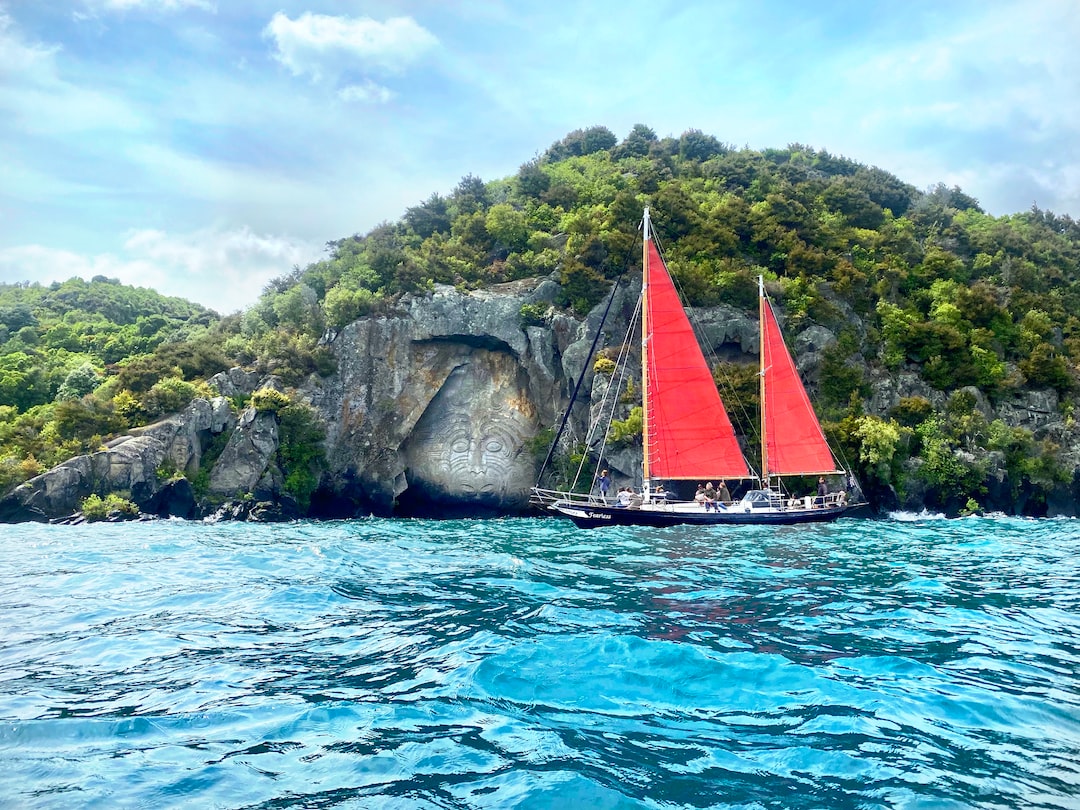Are you ready to learn about Maori wedding traditions?
From the ceremony and reception to attire and gift-giving – it’s an exciting time for couples who are eager to embrace their cultural heritage.
But what exactly does a Maori wedding look like?
In this article, we’ll explore the different Maori wedding traditions so you can confidently plan your special day.
Get ready to dive deep into all things related to Maori weddings.
Maori Wedding Traditions
Pre-Wedding Traditions
1. The Proposal
According to Maori tradition, a traditional marriage proposal often includes a taonga (a gift of value) and an appeal to the prospective spouse’s family for their blessing.
The man seeking to marry would typically bring a selection of small gifts as part of the proposal, such as flowers or jewelry.
He may also recite love poems or other romantic words in the native language of Māori.
If accepted, the man will offer his new fiancé the Taonga (gift), and then the couple would ask for the family’s blessing together.
Maori Wedding Ceremony Traditions
Maori wedding ceremonies are steeped in tradition and symbolism.
Pre-wedding rituals are an important part of the ceremony, as they symbolize the joining of two families.
Traditionally, a karakia (prayer) is performed by both families to bless the union before it begins.
The bride and groom then exchange gifts with their respective parents or guardians to signify their commitment to each other’s family.
2. The Processional
This is when the bride and groom enter the ceremonial space together for the first time as a married couple.
This usually involves traditional Maori music being played.
At the same time, everyone stands in respect for them entering together hand-in-hand or side-by-side wearing traditional clothing such as cloaks made from feathers or flax fiber garments called piupiu.
3. Exchange of Vows and Rings
This is when couples exchange rings that have been blessed by their elders during this ritualistic part of the ceremony.
It’s common for couples to make promises to one another, which can be done through reciting vows or singing waiata (traditional songs).
These promises serve as reminders throughout their marriage journey that they will always remain devoted to each other no matter what life throws at them.
4. Venue
The traditional home of the Maori people is in New Zealand, and many weddings will be held in this beautiful country.
In fact, it’s quite common to see couples who are part of the culture choose to get married in places that have special meaning for them – such as their tribal area or a place with natural beauty.
Popular venues for traditional Maori wedding ceremonies include marae (traditional meeting grounds), onsite event locations such as hotels or lodges, and even private homes.
For those who wish to wed in the great outdoors, beaches, gardens, forests, and lakes are popular locations.
Maori Wedding Reception Traditions
Maori wedding receptions are full of traditions that have been passed down through generations.
The introduction of the couple is an important part of the ceremony, and it usually involves a traditional Maori chant or song to welcome them into their new life together.
5. Food and Drink
A traditional Maori wedding would include a variety of foods that incorporate cultural traditions.
The main course could be roasted pork, mutton, or seafood such as mussels, depending on the season and ingredients available.
Accompanying dishes may include kumara (sweet potato) and potatoes, salads, fruit platters, and hangi-cooked vegetables.
For dessert, guests might enjoy traditional baking, such as scones, cakes, or puddings.
Speeches and toasts are also common at Maori weddings, with friends and family offering words of encouragement and support for the newlyweds.
6. Music, Dancing, and Games
Maori couples often partake in the traditional act of a first dance as part of their wedding ceremony.
This is a symbolic moment that typically involves slow music or chanting.
As well as being a romantic gesture, it reflects the cultural significance of the union between two people and serves as an example to future generations.
At a traditional Maori wedding, the ceremony and celebrations can be accompanied by drums, flutes, and other indigenous instruments.
Haka (Maori war-dances) are also commonly performed at weddings.
During the formalities, romantic songs will be sung in the native language of Māori.
After the ceremony, more upbeat music may be played to encourage guests to start singing and dancing.
Poi (a spinning ball on a string) can be performed by guests in honor of the couple.
Games like mau rākau (stick games) may also be played during the reception.
Finally, farewell rituals such as singing waiata (songs), exchanging hugs, and sharing koha (gifts) mark the end of this special day in Maori culture.
Each tradition has its symbolism – from welcoming guests to celebrating love – making these customs meaningful moments that will stay with couples long after their wedding day has ended.
Maori Wedding Attire Traditions
The bride and groom, as well as their bridal party and guests, are expected to dress according to the customs of the Maori people.
7. Bride and Groom’s Attire
A traditional Maori bride will wear a white or cream-colored gown with intricate embroidery.
She may also opt for a korowai (cloak) made from feathers or flax fiber, which symbolizes protection and love from her family.
Her hair is usually adorned with flowers or feathers to represent her beauty and grace.
The groom typically wears a black suit with an ornate pendant around his neck known as a hei tiki, which symbolizes strength and fertility.
He may also don a korowai cloak similar to that of the bride’s but made from different materials such as wool or cotton fabric instead of feathers or flax fiber.
Other Guests’ Attire
Bridesmaids often wear long dresses in shades of blue, while groomsmen can be seen wearing suits in dark colors like navy blue or black, accompanied by colorful ties that match the bridesmaids’ dresses.
Both men and women traditionally have their faces painted with moko designs—symbols unique to each individual—to signify their importance within the tribe on this special day.
Guests attending a Maori wedding should dress modestly yet elegantly.
Men should wear suits while women should opt for formal dresses that reach below the knee at least, in order to honor local customs properly during this momentous occasion.
8. Wedding Superstitions
Maori wedding superstitions have been part of the culture for centuries and are still present today.
From using a looped jute cord to bind the couple together to never wearing green for bridesmaids, many different beliefs are associated with a traditional Maori wedding.
Here’s a look at some common superstitions surrounding couples who are tying the knot:
-
A looped jute cord or “hongi” is symbolically used to bind two people together in marriage. It’s typically made out of flax leaves, and each person ties one end around their wrists while holding hands. During the ceremony, they will use it to exchange vows or affirmations of love and commitment. This tradition dates back centuries in Maori culture and remains an important part of modern weddings.
-
White is usually reserved for the bride to wear on her wedding day, as it represents purity. The bridesmaids also typically follow suit and wear white too. But there’s one color you should be sure to avoid – green! Green was traditionally seen as being unlucky for bridesmaids, so it’s best to keep them out of any green clothing during the big day.
-
An ancient tradition that’s still often practiced is for both sets of families (the bride’s family and groom’s family) to come together before the actual ceremony starts. The whole group stands in two lines facing each other and then joins hands – forming an arch over the couple – while they proceed down through this aisle together, into their new life union. It’s a beautiful way for family members from both sides to celebrate with the newlyweds right at the start of their special day.
Maori Post-Wedding Traditions
8. Gift-Giving
Maori wedding gift-giving traditions are an important part of the ceremony and reception.
Gifts are given to both the bride and groom, their bridal party, and guests.
Each type of gift has its symbolism, which is why it is important to understand these customs before attending a Maori wedding.
Traditional gifts for the bride and groom include items such as kete (baskets), pounamu (greenstone jewelry) or taonga (treasures).
These gifts represent love, loyalty, protection, fertility, strength, and prosperity in marriage. The couple will usually exchange these gifts during their vows or at some point during the ceremony.
Monetary gifts are also common at Maori weddings. The couple can use money gifted to them to pay for any expenses related to their wedding day or honeymoon.
It is customary for family members to give money in envelopes that have been decorated with traditional symbols like spirals or koru designs.
The bridal party may receive small tokens of appreciation from either side of the family.
Gifts such as necklaces made from greenstone beads or other traditional jewelry pieces like hei tiki figures carved out of bone or jadeite stone carvings known as mere pounamu may be given.
9. Honeymoon
Many Maori couples will go on a short honeymoon after they get married.
This trip is usually meant to signify the start of their new life and bond as husband and wife.
It’s not an old tradition, but it’s only become popular recently.
Typically, a honeymoon is seen as an opportunity for the couple to reconnect away from family and friends – taking a break from all the chaos and stress of planning a wedding and entering into “the next phase” of their lives together.
As such, it can be very meaningful for newlyweds who are part of the Maori culture – allowing them to enjoy some time away without worrying about any duties or obligations back home.
Conclusion
Maori wedding traditions are an important part of many New Zealand weddings.
From the traditional Maori ceremony to the gift-giving customs, incorporating these elements into your special day can make it even more meaningful and memorable.
No matter how you choose to incorporate them, taking time to learn about and honor, Maori wedding traditions is a great way to show respect for the culture and add a personal touch to your big day.




